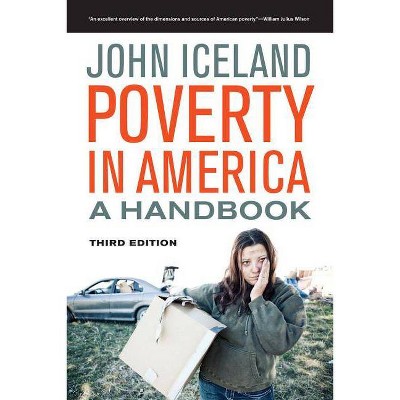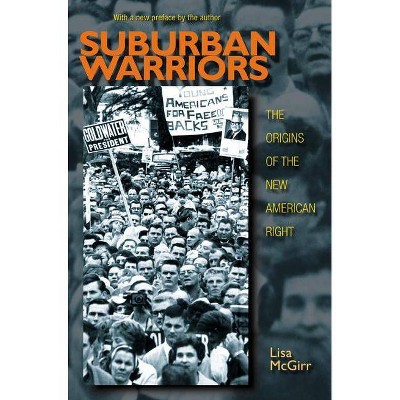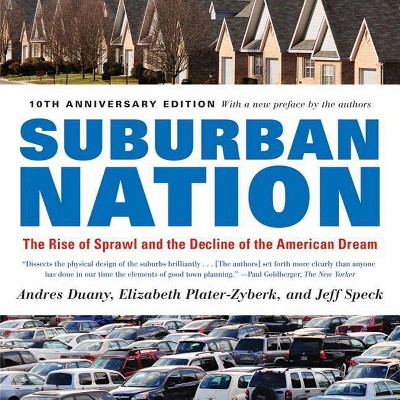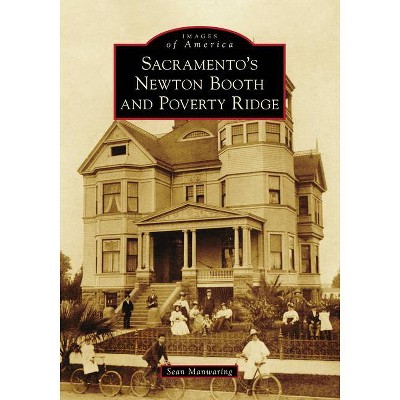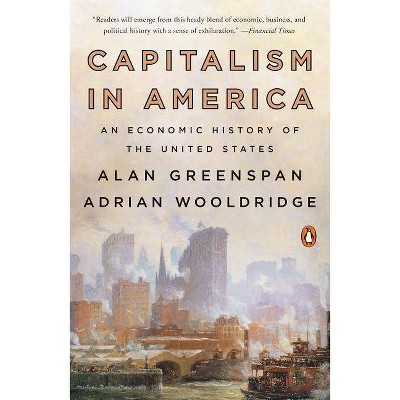Confronting Suburban Poverty in America - by Elizabeth Kneebone & Alan Berube (Paperback)
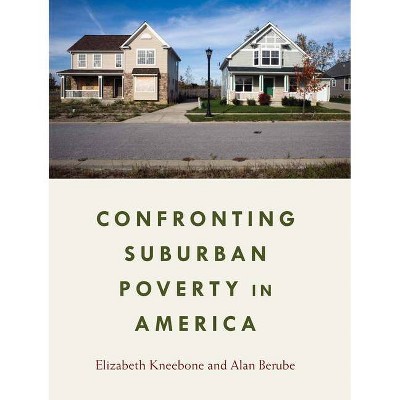
Similar Products
Products of same category from the store
AllProduct info
<p/><br></br><p><b> About the Book </b></p></br></br><p>It has been nearly a half century since President Lyndon Johnson declared war on poverty. Back in the 1960s tackling poverty in place meant focusing resources in the inner city and in rural areas. The suburbs were seen as home to middle- and upper-class families--affluent commuters and homeowners looking for good schools and safe communities in which to raise their kids. But today's America is a very different place. Poverty is no longer just an urban or rural problem, but increasingly a suburban one as well. In <i>Confronting Suburban Poverty in America</i>, Elizabeth Kneebone and Alan Berube take on the new reality of metropolitan poverty and opportunity in America.</p> <p>After decades in which suburbs added poor residents at a faster pace than cities, the 2000s marked a tipping point. Suburbia is now home to the largest and fastest-growing poor population in the country and more than half of the metropolitan poor. However, the antipoverty infrastructure built over the past several decades does not fit this rapidly changing geography. As Kneebone and Berube cogently demonstrate, the solution no longer fits the problem.</p> <p>The spread of suburban poverty has many causes, including shifts in affordable housing and jobs, population dynamics, immigration, and a struggling economy. The phenomenon raises several daunting challenges, such as the need for more (and better) transportation options, services, and financial resources. But necessity also produces opportunity--in this case, the opportunity to rethink and modernize services, structures, and procedures so that they work in more scaled, cross-cutting, and resource-efficient ways to address widespread need. This book embraces that opportunity.</p> <p>Kneebone and Berube paint a new picture of poverty in America as well as the best ways to combat it. <i>Confronting Suburban Poverty in America</i> offers a series of workable recommendations for public, private, and nonprofit leaders seeking to modernize po<p/><br></br><p><b> Book Synopsis </b></p></br></br><p>It has been nearly a half century since President Lyndon Johnson declared war on poverty. Back in the 1960s tackling poverty in place meant focusing resources in the inner city and in rural areas. The suburbs were seen as home to middle- and upper-class families--affluent commuters and homeowners looking for good schools and safe communities in which to raise their kids. But today's America is a very different place. Poverty is no longer just an urban or rural problem, but increasingly a suburban one as well. In <i>Confronting Suburban Poverty in America</i>, Elizabeth Kneebone and Alan Berube take on the new reality of metropolitan poverty and opportunity in America.</p> <p>After decades in which suburbs added poor residents at a faster pace than cities, the 2000s marked a tipping point. Suburbia is now home to the largest and fastest-growing poor population in the country and more than half of the metropolitan poor. However, the antipoverty infrastructure built over the past several decades does not fit this rapidly changing geography. As Kneebone and Berube cogently demonstrate, the solution no longer fits the problem.</p> <p>The spread of suburban poverty has many causes, including shifts in affordable housing and jobs, population dynamics, immigration, and a struggling economy. The phenomenon raises several daunting challenges, such as the need for more (and better) transportation options, services, and financial resources. But necessity also produces opportunity--in this case, the opportunity to rethink and modernize services, structures, and procedures so that they work in more scaled, cross-cutting, and resource-efficient ways to address widespread need. This book embraces that opportunity.</p> <p>Kneebone and Berube paint a new picture of poverty in America as well as the best ways to combat it. <i>Confronting Suburban Poverty in America</i> offers a series of workable recommendations for public, private, and nonprofit leaders seeking to modernize poverty alleviation and community development strategies and connect residents with economic opportunity. The authors highlight efforts in metro areas where local leaders are learning how to do more with less and adjusting their approaches to address the metropolitan scale of poverty--for example, integrating services and service delivery, collaborating across sectors and jurisdictions, and using data-driven and flexible funding strategies.</p> <p>We believe the goal of public policy must be to provide all families with access to communities, whether in cities or suburbs, that offer a high quality of life and solid platform for upward mobility over time. Understanding the new reality of poverty in metropolitan America is a critical step toward realizing that goal.--from Chapter One</p><p/><br></br><p><b> Review Quotes </b></p></br></br><br><P>" "Confronting Suburban Poverty in America" is one of those rare books that changes the way we think about an important domestic problem. It is replete with original findings and policy insights and will be widely cited and discussed. Kneebone and Berube's illuminating study on the dramatic growth of poverty in suburbs is a must-read not only for scholars, but also for policymakers and concerned citizens."--William Julius Wilson, Lewis P. and Linda L. Geyser University Professor, Harvard University<br><br><P>" "Confronting Suburban Poverty" provides critical insight into why the new reality of suburban poverty is difficult to address as well as the kinds of promising cross-border strategies that need more state and federal support. This important book reminds us why today's demographics require us to develop tomorrow's solutions."--Toni Preckwinkle, Cook County (Ill.) Board President<br><br><P>"Effectively helping families and communities under duress from the foreclosure crisis and Great Recession has required new types of partnerships within the nonprofit community and with private sector partners. This book explores how creative partnerships are guiding anti-poverty policy and practice into a future of tight capital and increasing need."--Sister Lillian Murphy, CEO, Mercy Housing<br><br><P>"If you thought suburban poverty was an oxymoron, this important book will set you straight. Elizabeth Kneebone and Alan Berube tell us the facts and offer thoughtful reforms to help under-resourced suburbs cope in our 21st-century world."--Peter Edelman, Professor of Law, Georgetown Law Center<br><p/><br></br><p><b> About the Author </b></p></br></br><p> <b>Elizabeth Kneebone</b> is a fellow in the Metropolitan Policy Program at the Brookings Institution.</p> <p> <b>Alan Berube</b> is a senior fellow and deputy director at the Metropolitan Policy Program.</p>
Price History
Price Archive shows prices from various stores, lets you see history and find the cheapest. There is no actual sale on the website. For all support, inquiry and suggestion messagescommunication@pricearchive.us
